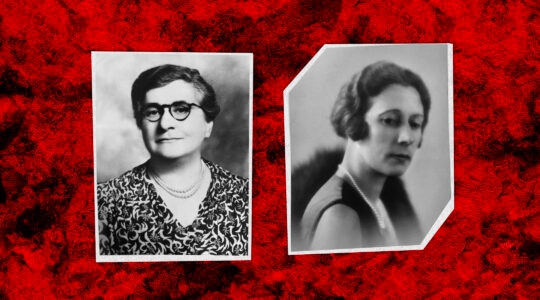Israelis who leave their native country to settle in the diaspora have long been known as yordim, those who go down. It is a disparaging term, and one in contrast to those diaspora Jews who make aliyah, or ascend, to live in Israel.
The two concepts – going up to or down from Israel — are anchored in a moral equation that harks back to classical Zionism, which negated the diaspora and insisted that Jewish survival depends on the imperative of aliyah.
But times have changed. Voluntary aliyah (as opposed to those coming to Israel to escape persecution) attracts a fraction of diaspora Jewry, most of whom live in the secure, open society of America; Israeli leaders over time have come to recognize both the demographic reality and the political and philanthropic advantages of having influential brethren overseas; and all the while, more and more Israelis have become fluid in their lifestyles, often settling in countries like the U.S.
Now comes an intriguing new study that calls for changing the paradigm in relations between Israel and the diaspora based on embracing Israelis living abroad as pivotal players and “a catalyst toward Jewish peoplehood” rather than rejecting them as outsiders.
The report by the Reut Institute, a Tel Aviv-based think tank, sees a role for the Israeli government and the organized American Jewish community in “leveraging” the “unique hybrid identity” of those Israelis living in the diaspora as a means of “strengthening the relationship between Israel and world Jewry.”
That involves making Israelis here feel more accepted and engaged, and more sought-after for their cultural contributions by accepting them on their own terms and meeting their social and educational needs.
No longer viewed as a liability for staying in their own circles and remaining apart from the organized Jewish community, the Israelis will be drawn to the larger community and become known as North American Jewish Sabras, the report suggests, a key segment of men and women who can help bridge the gap between Israeli and American Jews.
“The emerging paradigm is shaped by partnership and mutuality,” according to the study, “with the notion of Jewish Peoplehood taking center stage.
“This changing dynamic,” it continues, “presents an opportunity for the Jewish people.”
One can also see this new emphasis on Jewish peoplehood in a second new study, one that focuses not on Israelis living here but on young American Jews perceived to be further removed from Israel.
The report by the Jewish People Policy Institute (JPPI), based in Jerusalem and comprised of Israeli and American leaders and thinkers, asserts that the notion of young American Jews distancing themselves from Israel is not proven statistically – some sociologists say support for Israel has remained virtually unchanged for decades – and that it is the notion itself that is having a negative effect.
The authors of the report, journalist Shmuel Rosner and JPPI research fellow Inbal Hakman, say the issue, most notably advanced by writer Peter Beinart, “is rapidly becoming a major preoccupation” among Jewish leaders and that the discussion “tends to exacerbate negative trends and thus risks becoming a self-fulfilling prophecy.”
Beinart, primarily in a New York Review of Books article two years ago and also in his new book, “The Crisis of Zionism,” posits that a growing number of young Jews here feel alienated from Israel because of its non-democratic treatment toward Palestinians.
The JPPI report suggests using the more positive term “attachment,” as in measuring more or less attachment to Israel, rather than the negative “distancing from Israel” in discussing the issue.
But the report goes further than semantics, suggesting that channels be created so that Israel “can serve as a vehicle for personal and social expression – mainly through cultural, spiritual and religious innovation” – rather than just be seen as “a national political expression.”
This would involve more opportunities for American and Israeli young people to study and do volunteer work together, enhanced by removing barriers for alternative and liberal Jewish communities in Israel to flourish.
In addition, the Israeli government should deepen its understanding of the American Jewish community, in part through research, and also deal directly not only with establishment Jewish organizations in the U.S. but improve dialogue with emerging leaders, and not only on a political level.
These recommendations are in addition to ones made in an earlier JPPI study that called for more programs like Birthright to bring young diaspora Jews to Israel, more Jewish education, more understanding of Israeli culture and more efforts to strengthen Jewish identity among young Israelis.
While one can debate the specific recommendations of both the Reut and JPPI reports, it is worth noting that these creative think tanks are devoting their time and resources to deepening and expanding the concept of Jewish peoplehood as a means of closing the gap between Israel and the American Jewish community. And that is wise, and a vital goal.
The key question to answer is why should a new generation of Jews in Israel and the diaspora care about each other? There was a time not so long ago when the historical, religious and emotional ties among Jews around the world were strong enough to make the question superfluous. That is no longer the case.
Rather than bemoan that fact, it’s good to know that thoughtful people are grappling with new ways to respond. More of us should engage as well, recognizing that the Jewish future depends on our success.
Gary@jewishweek.org
The New York Jewish Week brings you the stories behind the headlines, keeping you connected to Jewish life in New York. Help sustain the reporting you trust by donating today.





